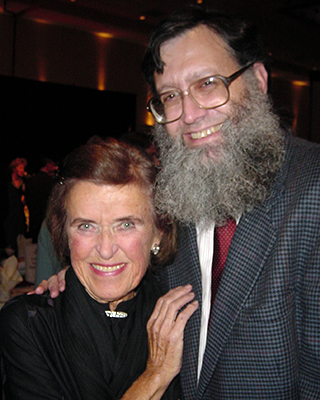Endowments for Faculty Excellence
Help the Allen School recruit and retain the finest faculty members!
Endowed Chairs and Endowed Professorships provide recognition and support to the very strongest faculty members. They are critical to the recruitment and retention of these true leaders for two reasons:
- Prestige and national visibility: An endowed position carries recognition among colleagues within academia and industry and beyond. This type of recognition is an important retention tool for exemplary faculty, encouraging them to continue their important work at UW.
- Opportunity for unfettered creativity: An endowed position provides discretionary funds that may be used for any scholarly purpose. This flexibility is invaluable because most government grants provide restricted funds for a specific activity. While funds from grants for established research directions are critical, discretionary funds support creativity and entrepreneurial ideas — akin to “venture funding” for talented faculty to experiment and go in different, sometimes unexpected and serendipitous, directions.
Our greatest current priority is the creation of additional Endowed Professorships to aid in the recruitment and retention of extraordinary faculty. Our faculty has grown considerably in recent years, but our number of Endowed Professorships has not, due to our need to focus on securing funding for the Bill & Melinda Gates Center.
Profile: The Frank & Wilma Bradley Endowed Chair in Computer Science & Engineering
 Wilma Bradley was a volunteer, a philanthropist, a patron of the arts, an avid investor, and a special friend of the University of Washington who is keenly interested in a broad range of intellectual pursuits.
Wilma Bradley was a volunteer, a philanthropist, a patron of the arts, an avid investor, and a special friend of the University of Washington who is keenly interested in a broad range of intellectual pursuits.
Wilma’s interest in Computer Science & Engineering grew after attending the UW Annual Faculty Lecture given by CSE Professor Ed Lazowska in 1996. After several years of supporting CSE Ph.D. students (and regularly attending their thesis defenses!), she established the Frank & Wilma Bradley Endowed Professorship in Computer Science & Engineering, in her name and that of her late husband. Subsequent funding elevated the Bradley Professorship to the Bradley Chair. Professor David Notkin was the inaugural holder of the Bradley Professorship, and subsequently of the Bradley Chair, which he held until his untimely death in 2013. One year later, in 2014, Professor Tom Anderson succeeded David as holder of the Bradley Chair.
Wilma’s personal involvement with the Allen School’s faculty and students, and her interest in their work and in the broad impact of technology on society, made the Bradley Chair special. Wilma passed away on October 22, 2022.
How it works
A gift to an endowment is a permanent gift to the Allen School. The principal is invested to grow over time, while the annual income provides a reliable stream of support to help us achieve our missions of education, research, and service. Donors who contribute to an endowment create a lasting legacy — an investment in the present and the future. Because endowments provide a never-ending source of income, donors have the satisfaction of knowing that they are investing in the Allen School’s mission while ensuring that their own philanthropic goals are met.
Endowed Chairs and Endowed Professorships differ primarily in the funding level. Endowed Professorships in the Allen School are funded at a level of $1 million, while Endowed Chairs are funded at a level of $3 million. In both cases, the principal is invested in UW’s Consolidated Endowment Fund, which has consistently performed in the top quartile of endowments nationally. Roughly 4% is available for expenditure every year; additional gains are reinvested to keep pace with inflation.
Interested in learning more?
Contact Ed Lazowska, Professor, and Bill & Melinda Gates Chair emeritus, in the Paul G. Allen School, lazowska (at) cs.washington.edu, or Marzette Mondin, Director of Advancement in the Paul G. Allen School, marz (at) uw.edu
Lifetime endowment gifts of $25,000 and above are permanently recognized on the UW CSE Endowment Wall in the Allen Center atrium.
Named funds are available for gifts of $100,000 and above. Appropriate recognition, designed in consultation with each donor, is part of each gift that creates a named fund.
